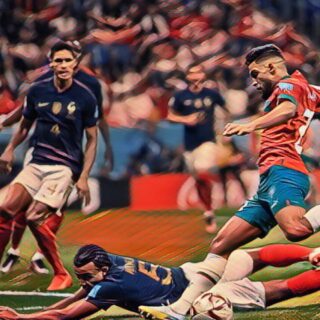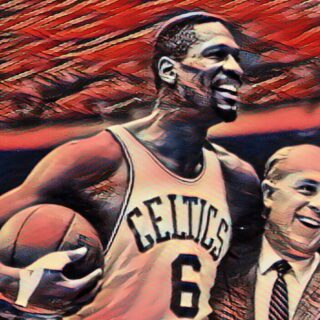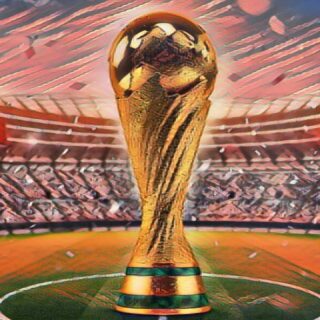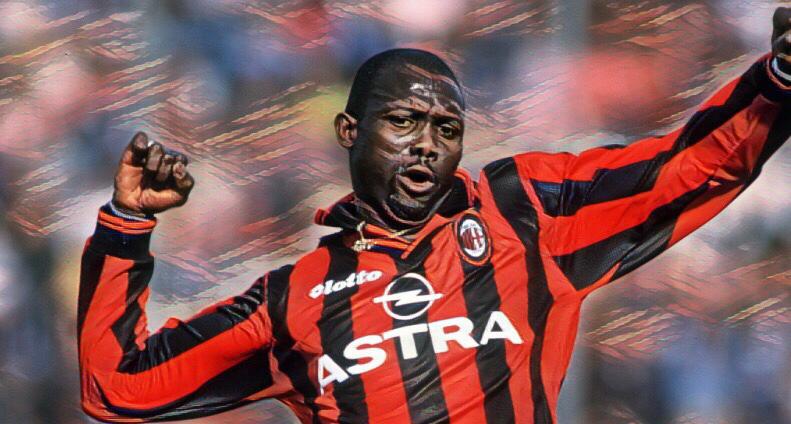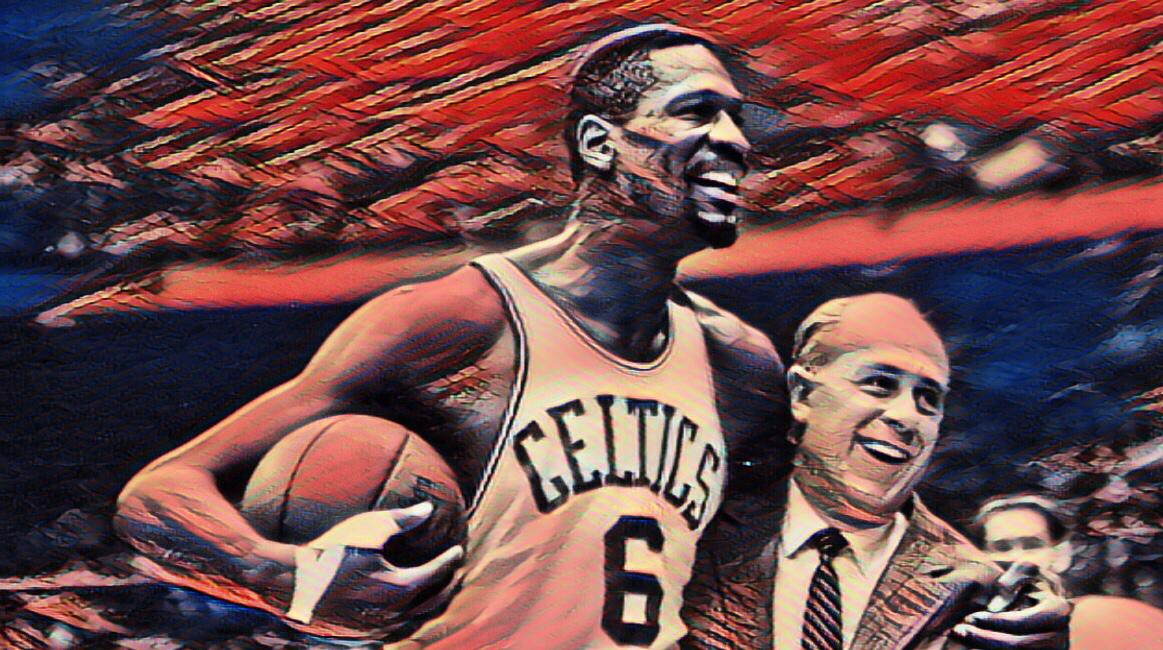George Weah
Athletes, especially footballers, are some of the most popular figures worldwide. Basketball players, tennis stars, boxers, and F1 drivers also have fan bases across the globe. Many of the most followed people on Instagram are athletes. This widespread popularity starts with childhood dreams of becoming sports stars, and athletes often become role models. Many use their fame to speak out on social issues. Some athletes go even further, deeply caring about their country’s and people’s issues. While Dutch legend Ruud Gullit once said, “Football and politics don’t mix,” there are many examples proving him wrong. Many athletes have entered politics, but none have a story as compelling as George Weah’s.
“Football is the happiness of the oppressed people.”
George Weah
George Weah’s Journey
George Weah, full name George Oppong Weah, was born in Monrovia, Liberia, in 1966. Liberia, founded by freed African-American slaves from the U.S., means “land of the free.” However, the native population didn’t welcome the newcomers, leading to long-lasting conflicts and civil wars that claimed hundreds of thousands of lives and stunted the country’s economic growth. Weah grew up in a poor, gang-ridden neighborhood but overcame his circumstances to become Africa’s greatest footballer and eventually the president of Liberia.
Early Life
Weah was born into a poor family; his father was a mechanic, and his mother was a market seller. After his father died shortly after his birth, his mother left him, and he was raised by his grandmother along with three siblings. He spent his childhood playing soccer on the dusty, unpaved streets of Monrovia.

Football Career
Liberia
Weah’s talent was quickly noticed, and he started playing for several local teams. While playing soccer, he continued his education and worked part-time as a technician. He attended several schools during his youth, finishing middle school at the Muslim Congress and high school at Wells Hairston before dropping out in his final year to focus on soccer. He played for teams like Young Survivors, Mighty Barolle, Invincible Eleven, and Africa Sports, winning local tournaments and earning titles like the Liberian Cup and Liberian Premier League.
Cameroon
By 1988, Weah had become a well-known name in African football, transferring to Cameroon’s top team, Tonnerre Yaounde. His impressive performance caught the attention of scout Claude Le Roy, who contacted Arsene Wenger. After just one year in Cameroon, Weah moved to Monaco under Wenger’s guidance.
Monaco
Arsene Wenger brought Weah to Europe, and Weah later credited Wenger as the most influential person in his career. Weah quickly became one of the best African players in Ligue 1, winning the African Footballer of the Year award in his first season. He helped Monaco win the Coupe de France in 1991 and reached the European Cup Winners’ Cup final in 1992. After four successful years, he transferred to Paris Saint-Germain (PSG).
Paris Saint-Germain
Joining PSG in 1992, Weah spent three seasons with the club, winning two Coupe de France titles, a French League title, and a Coupe de la Ligue. PSG, under Weah’s leadership, enjoyed one of its most successful periods.
At his peak, Weah won the African Footballer of the Year award again in 1994. In 1995, he left France for Milan.
Milan
Weah joined AC Milan in 1995, leading them to the Serie A title in his first season and reaching the Champions League semifinals. His outstanding performance earned him the African Player of the Year, FIFA World Player of the Year, and Ballon d’Or in 1995, making him the first and only African player to win these awards. He dedicated all his awards to Arsene Wenger. Despite breaking Portuguese player Jorge Costa’s nose in a match and receiving a six-game suspension, he won the Fair Play Award for personally funding Liberia’s participation in the African Nations Cup. He ended his Milan career in 1999-2000 and moved to England on loan.
England
Weah played for Chelsea for a season, winning the FA Cup. Despite a decent performance, his loan wasn’t extended, and he moved to Manchester City. At an older age, he couldn’t make a significant impact in the Premier League and left after one season.


End of Career
Weah spent a season at Marseille before transferring to Saudi Arabia’s Al Jazira, where he played for two seasons before retiring in 2003.
International Career
Weah played for the Liberian national team but didn’t achieve much success in international tournaments. He is considered one of the best players never to have played in a World Cup. Known for his speed, dribbling, and technical skills, Weah was a forward ahead of his time, paving the way for today’s versatile strikers. He was named one of FIFA’s 100 greatest living players. After retiring, he focused on his country’s issues, becoming a UNICEF Goodwill Ambassador in 1997. Nelson Mandela dubbed him “Africa’s Pride,” and he received the Eagle Award, a prestigious honor for African achievers.
Humanitarian Efforts
During Liberia’s civil war (1990-2003), Weah was a beacon of hope. He frequently visited refugee camps, provided aid, sponsored needy students, and became the country’s most generous donor of scholarships. He funded travel for people seeking better futures and supported the national team as captain and coach, covering costs for travel and equipment. He was actively involved in humanitarian efforts across Africa and promoted vaccination campaigns in Liberia. For his contributions, Weah became a role model for many African athletes.
Political Career
Even at the peak of his football career, Weah never stopped caring about his country. He clashed with Liberian President Charles Taylor, leading to his home being ransacked by gangs. Although his family was not home, relatives and staff suffered tragic abuses. Despite the trauma, Weah couldn’t voice his opposition due to his career pressures. In 2004, he joined the Congress for Democratic Change and announced his presidential candidacy. In 2005, he lost the election to Ellen Johnson Sirleaf, Africa’s first female president. Despite his limited education, Weah pursued further studies, earning a degree in Business Administration and a master’s in Public Administration from DeVry University in Miami. In 2014, he won a senate seat by a landslide and continued his political journey. In 2017, he ran for president again and won against Joseph Boakai, becoming Liberia’s 25th president.
George Weah remains Liberia’s most successful and famous figure. He inspired his people on the soccer field and continued to be an influential and popular figure in politics, despite initial setbacks. He is married to Jamaican-born Clar Weah and has two sons and a daughter, with both sons becoming footballers and one playing for the U.S. national team. Despite criticism for his international connections, Weah has always been dedicated to his country’s welfare. Icons like Drogba, Eto’o, Mane, and Gomis have cited Weah as an inspiration for their efforts on and off the field.

